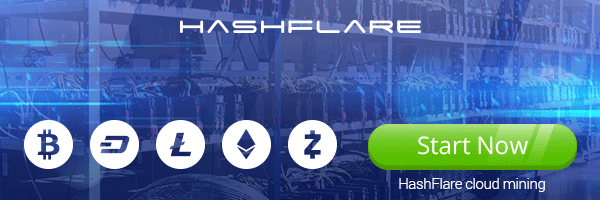
[ad_1]
Just as the cryptocurrency sector is constantly changing and evolving, the enterprise blockchain industry has been undergoing its fair share of developments lately. Most recently, enterprise blockchain solutions are shifting from private, closed networks to public, open systems. This has largely been made possible due to advances from the Ethereum network, which are ensuring better privacy, scalability, throughput and more for enterprise clients.
A new industry analysis report demonstrates this shift, noting that the global blockchain technology market size is expected to reach $72 billion by 2026, rising at a market growth of 51.8% CAGR during the forecast period. Interestingly enough, findings from the report show that during 2020, the public enterprise blockchain market segment emerged as the leading model with the highest share in the global market.
As more enterprise blockchain solutions shift to public networks, it shouldn’t come as a surprise that Microsoft recently announced that its Azure Blockchain Service is migrating users to alternative offerings. It’s important to note that Microsoft’s Azure Blockchain was originally created from a sandbox-style service in 2015 on Ethereum in partnership with ConsenSys. In 2019, the solution was offered as a fully managed blockchain-as-a-service, or BaaS.
Fast forward to 2021, and a recent blog post from Microsoft states that Azure users must now “migrate ledger data from Azure Blockchain Service to an alternate offering.” The article further recommends for users to move to the Quorum Blockchain Service, or QBS.
For context, QBS is a managed offering by ConsenSys on Azure that supports Quorum as ledger technology. Quorum allows enterprise clients to build blockchain solutions on the public Ethereum mainnet, along with private networks.
Emmanuel Marchal, global head of sales for the blockchain software firm ConsenSys, told Cointelegraph that given ConsenSys’ ownership of Quorum, along with the company’s long-term relationship with Microsoft, it makes sense for Microsoft to join with ConsenSys:
“ConsenSys is providing migration from the Azure Blockchain Service to the Quorum Blockchain Service offered on Azure. This has always been a part of our strategic relationship, to make sure that Azure customers have an enterprise-grade managed blockchain service with Quorum.”
Marchal further noted that ever since ConsenSys gained ownership of Quorum from JPMorgan last year, the company has been focused on bringing novel technology to market. This includes having a managed service for Quorum. Based on the strong relationship between ConsenSys and Microsoft, Marchal explained that “It makes sense to transition the Azure Blockchain Service users to QBS as the recommended migration strategy.”
As such, Marchal shared that ConsenSys has been working actively with dozens of Azure Blockchain users to help them plan their migration to QBS. “The goal is for a collaboration between Microsoft and ConsenSys to ensure a seamless migration from one service to the other,” he said. Microsoft announced that its Azure Blockchain Service will be “retired” on Sept. 10, and users must be migrated to QBS or an alternative service before then.
Is this good news for Microsoft?
Although it may seem unfortunate that Microsoft’s Azure Blockchain Service is coming to an end, Marchal views this shift as an advancement. “ConsenSys maintains open-source Quorum technology. Azure Blockchain Service users using that private technology remain in good hands with ConsenSys moving forward, and we are confident about this migration.”
Moreover, from the Microsoft Azure Blockchain Service user perspective — which includes major corporate customers such as JPMorgan, GE Aviation, Singapore Airlines, Starbucks and Xbox — the migration to QBS may not have much of an impact. For instance, global blockchain lead at Ernst & Young (EY) Paul Brody told Cointelegraph that the Big Four firm’s program with Microsoft and Xbox remains unchanged:
“The Microsoft program to migrate software contracts for the Xbox ecosystem to Ethereum-based smart-contracts continues to gain steam, with over 300 companies now integrated.”
Azure SQL adds an immutable ledger
Coincidently, Azure SQL — a managed cloud database provided as part of Microsoft Azure — is incorporating a ledger feature. This development was recently announced at Microsoft’s Build 2021 developer event.
According to a Microsoft blog post published on May 25, the “Azure SQL Database ledger” will add tamper-evident capabilities to Azure SQL databases. The post further states that the Azure SQL Database ledger will provide a “simpler solution for centralized systems where strengthening trust between parties is required.”
It’s also noted that the ledger feature of the Azure SQL Database does not require any migration of data or changes to user applications. “You can enable ledger functionality on tables in your database and interact with them the same ways you would for any other tables,” the post states.
While notable, the Azure SQL Database sounds very similar to Oracle’s crypto-secure data offering, which was announced in March. Juan Loaiza, executive vice president of Mission-Critical Database Technologies at Oracle, previously told Cointelegraph that Oracle has created a crypto-secure data management offering that leverages “blockchain tables” within the Oracle database. Loaiza also noted that this feature is different from Oracle’s blockchain platform, which is built on Hyperledger Fabric and is often used for supply chain management.
This in mind, another possible enterprise blockchain trend moving forward may be the incorporation of immutable ledgers to enterprise-grade databases, as already demonstrated by both Oracle and Microsoft.
Will more enterprises shift to public systems?
In regard to Microsoft’s migration to a solution powered by enterprise Ethereum, Brody remarked that EY is seeing an overall trend, where companies are shifting their focus toward public blockchains and closing down their private-blockchain-centric hosting businesses. “With nearly 15,000 nodes for Bitcoin and Ethereum combined running out there, everyone is seeing the much bigger public business as the priority,” he said.
Although this may be the current trend, it’s noteworthy to mention that some enterprise solutions are continuing to rely on private networks. General manager of IBM AI Apps and Blockchain Kareem Yusuf told Cointelegraph that enterprises are continuing to invest in blockchain networks, and many select permissioned blockchains to solve complex industry challenges:
“Among enterprises, collaboration and trusted data sharing are essential, and for many, permissioned networks provide the assurance they require. In the future, we expect that we’ll see more intersection of public and private networks.”
[ad_2]
Source link





 Bitcoin
Bitcoin  Ethereum
Ethereum  Tether
Tether  XRP
XRP  Solana
Solana  USDC
USDC  Dogecoin
Dogecoin  TRON
TRON  Cardano
Cardano
Be the first to comment